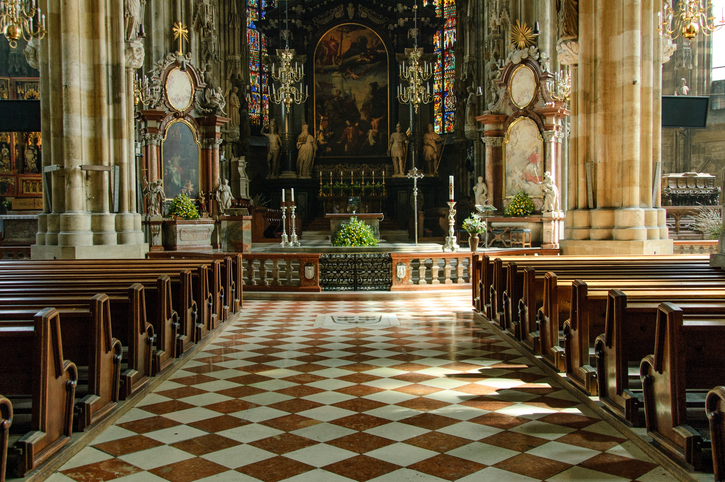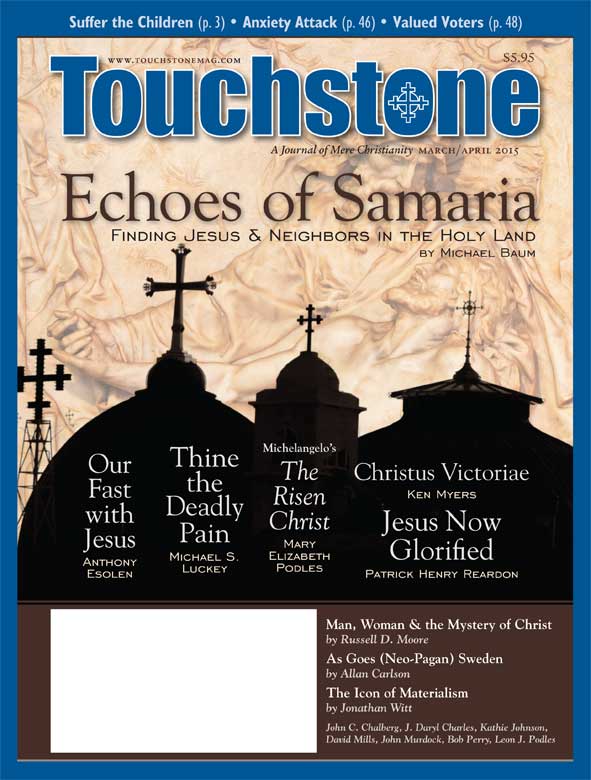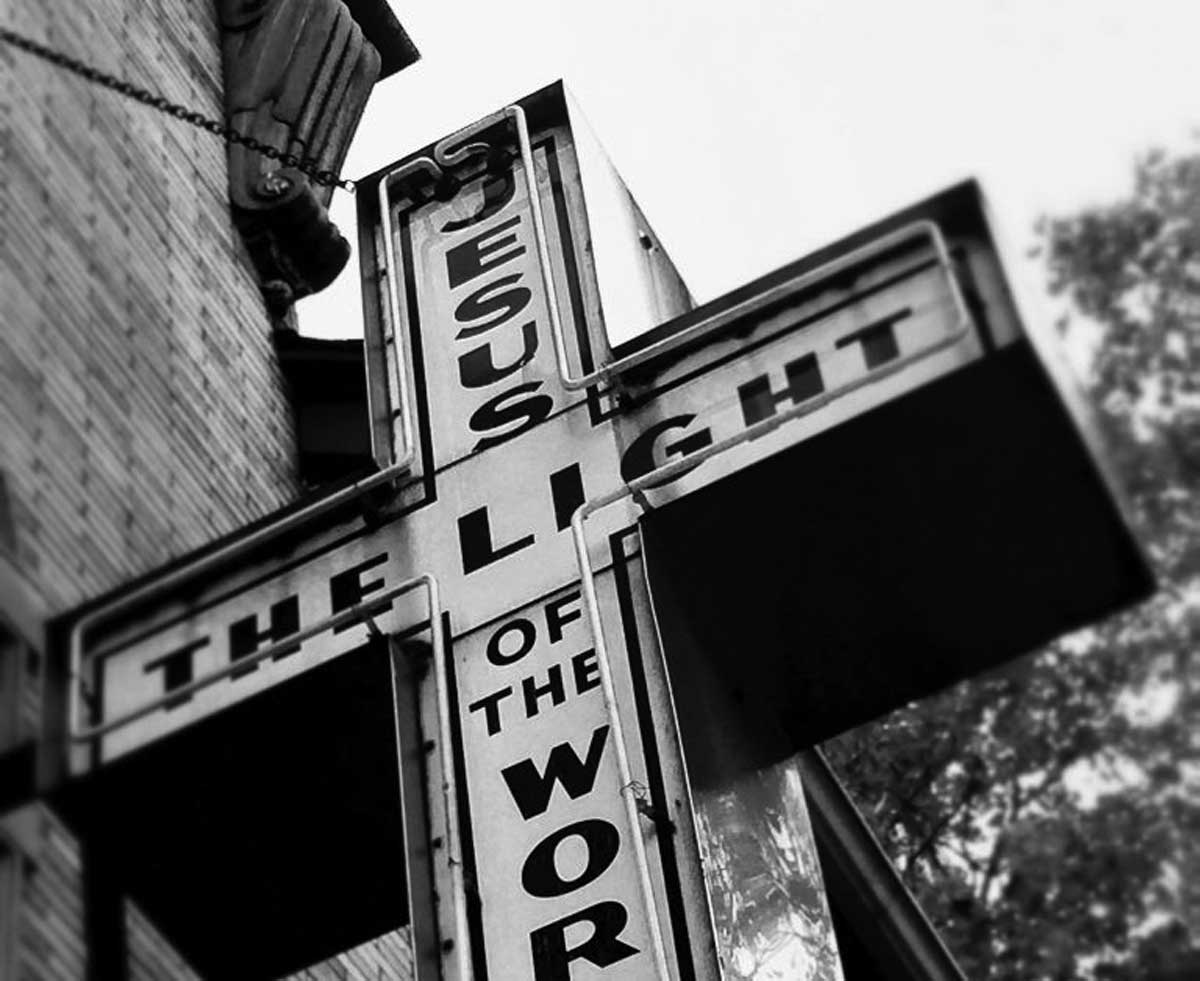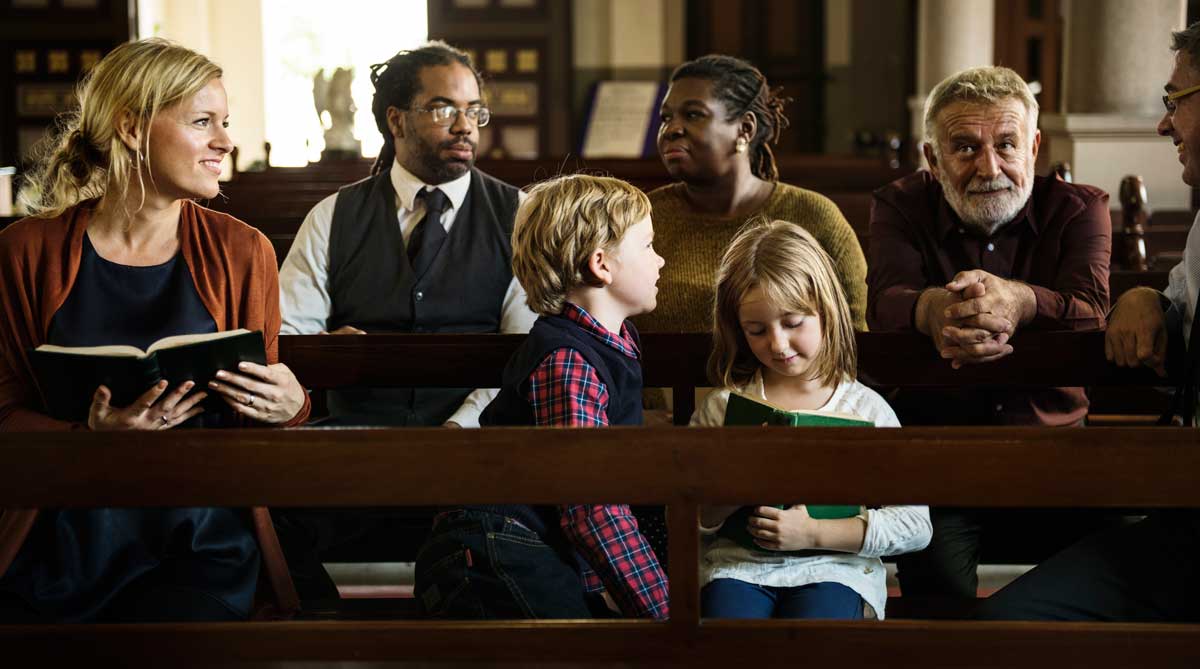View
Facing God
David Mills on Divine Worship & the Natural Limits of Community
It's a story priests and pastors will recognize. "After 20 years of mixed feelings and more than eight months of discussion and debate with my husband," wrote the novelist Judy Mollen Walters,"we had walked away from the place where our babies had been named, welcomed, and bat mitzvahed, the place where we had celebrated countless holidays, volunteered hundreds of hours, and—not to mention—spent thousands of dollars."
They had not done this lightly, she explained on the Jewish web magazine The Tablet. "In the eight months of debate—and maybe even for years before that—we'd been feeling dissatisfied, like we were missing the essence of belonging. We didn't feel particularly connected to the other members or that we were getting much out of it."
She goes on to tell the story of their membership and the reasons they felt alienated, including an over-controlling rabbi and people who bickered about small matters and avoided their share of the work. Changes in their own lives, particularly their children growing out of the need for Hebrew school and the youth group, loosened their attachment to their synagogue even more. It's a story almost everyone has experienced, if not from church, though very possibly there, from other enterprises they've joined.
At the end of the essay she holds out a small hope they can find a synagogue they will want to attend.
We still talk about where else we can join, but we haven't found the place, a place where we can volunteer comfortably and go to adult education classes and where everyone knows who we are and we know who they are, and we feel like we fit in. There are geographic obstacles, too—synagogues that sound good but are just far enough away that we know we wouldn't go.

Inability to Worship
I think this even more important to her than the unhappy experience, though she mentions it only in passing: "I was never going to temple. Services were very long, I often got bored and itchy when we did go, which was rare, and I wasn't feeling connected." She doesn't make much of it. Her description of the problems with the synagogue takes up far more space in the story than this report of how little value she found in its worship. But I think her inability to worship affected her more than she realized.
I think that not because I have any window into her soul, but because belief makes bearable the kinds of communities churches and synagogues are. They are bodies with histories, traditions, customs, with a rigid if unstated hierarchy that is only minimally meritocratic. They are not like clubs or the group of friends you meet at the pub, which you continue only to the extent you enjoy them. They are made up of people you're stuck with. If you are not enmeshed in that system, by long attendance or family connections, so that you enjoy being a member, you will find parish life difficult.
Emphasis on Community
David Mills has been editor of Touchstone and executive editor of First Things.
bulk subscriptions
Order Touchstone subscriptions in bulk and save $10 per sub! Each subscription includes 6 issues of Touchstone plus full online access to touchstonemag.com—including archives, videos, and pdf downloads of recent issues for only $29.95 each! Great for churches or study groups.
Transactions will be processed on a secure server.
more on ecumenism from the online archives
more from the online archives
calling all readers
Please Donate
"There are magazines worth reading but few worth saving . . . Touchstone is just such a magazine."
—Alice von Hildebrand
"Here we do not concede one square millimeter of territory to falsehood, folly, contemporary sentimentality, or fashion. We speak the truth, and let God be our judge. . . . Touchstone is the one committedly Christian conservative journal."
—Anthony Esolen, Touchstone senior editor















